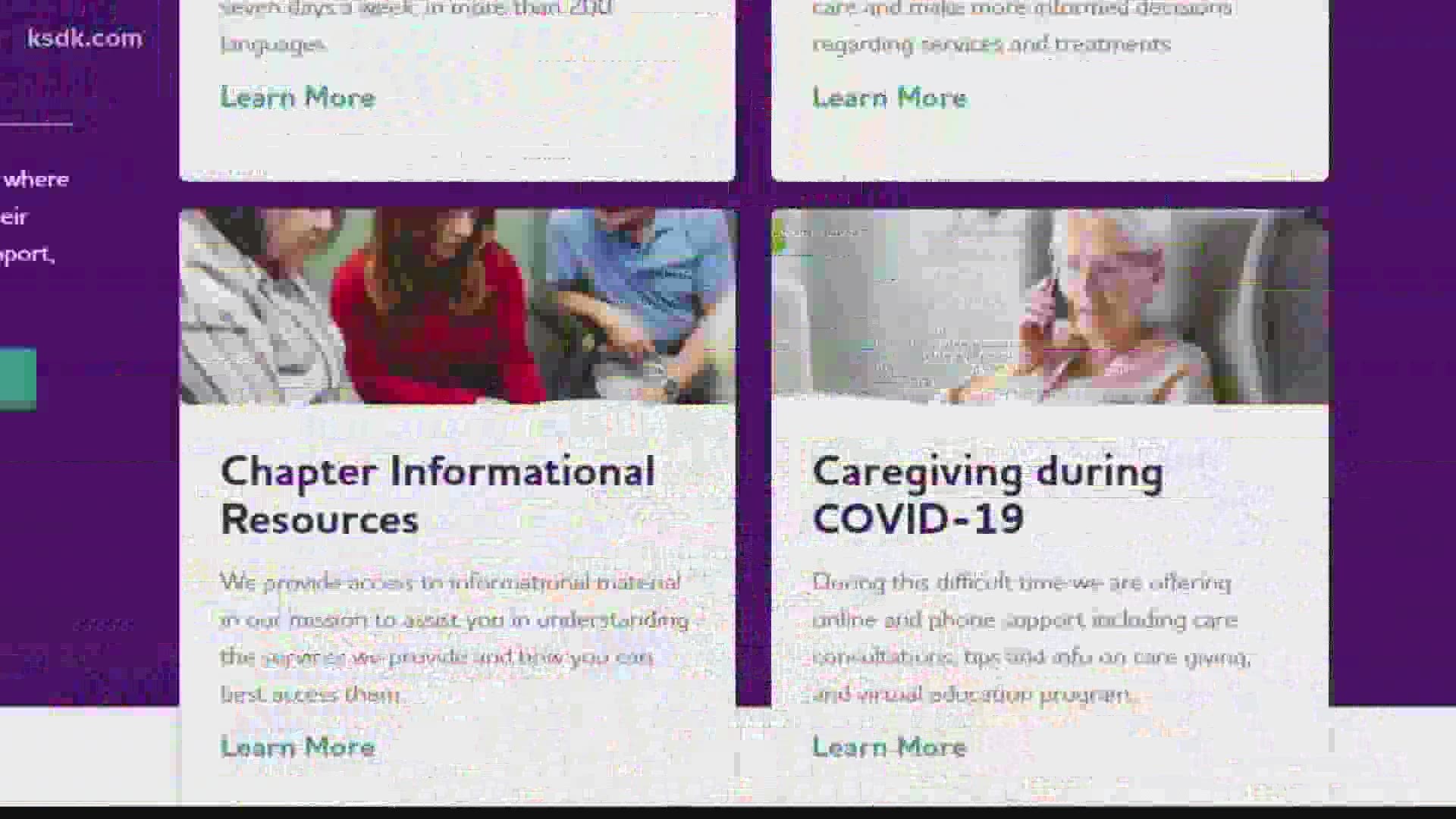ST. LOUIS — Advocates for those with Alzheimer's disease say they're seeing a higher number of Alzheimer's deaths during the pandemic.
"This is this is a hard, it's a hard time for folks, for sure,” Sarah Lovegreen of the Alzheimer's Association of Greater Missouri said.
Waves through the window, and kisses blown through the glass. We've all seen the images of loved ones in care homes isolated during the pandemic.
Now, the Alzheimer's Association of Greater Missouri says more people with the disease are dying during the pandemic, and not from COVID-19.
"It is really going on," says Lovegreen.
Physical declines caused by not being able to engage in community meals in a care home, or go on outings with family members. Even just a walk outside can make a big difference.
"They're not able to do that now,” Lovegreen said. So we're seeing physical declines. And then also, that lack of engagement and other cognitive stimulation that was helping them, you know, stay engaged and social with their loved ones. That's also gone by the wayside. So we're seeing those cognitive declines as well."
Relatives who used to be able to spend a few hours with a loved one in a care home, now get 15 minutes a few days a week, if they're allowed in at all.
Federal and state health officials recently relaxed isolation rules for care homes. But individual facilities are still able to decide how and how long family members can visit.
Still, pinpointing one single cause for the rise in deaths is difficult, according to Lovegreen.
"We know isolation has as detrimental as an effect on the general population as obesity and smoking. There's no reason we wouldn't see that among individuals with dementia as well,” says Lovegreen.
Here are some tips if you're planning to visit a loved one with Alzheimer's or dementia and haven't seen them in a few weeks or months:
- The Alzheimer's Association of Greater Missouri says prepare yourself ahead of time to notice some physical and cognitive decline.
- Don't ask your loved one if they remember you, instead identify yourself from the start.
- Having a few stories or fond memories ready can lead to a positive visit.
- Don't hesitate to talk about concerns with your loved one's care team.
If you're a solo caregiver at home right now, make an extra effort to carve out breaks for yourself that can help ease the stress you might be feeling.
The Alzheimer's Association of Greater Missouri has a 24/7 helpline at 800-272-3900.

